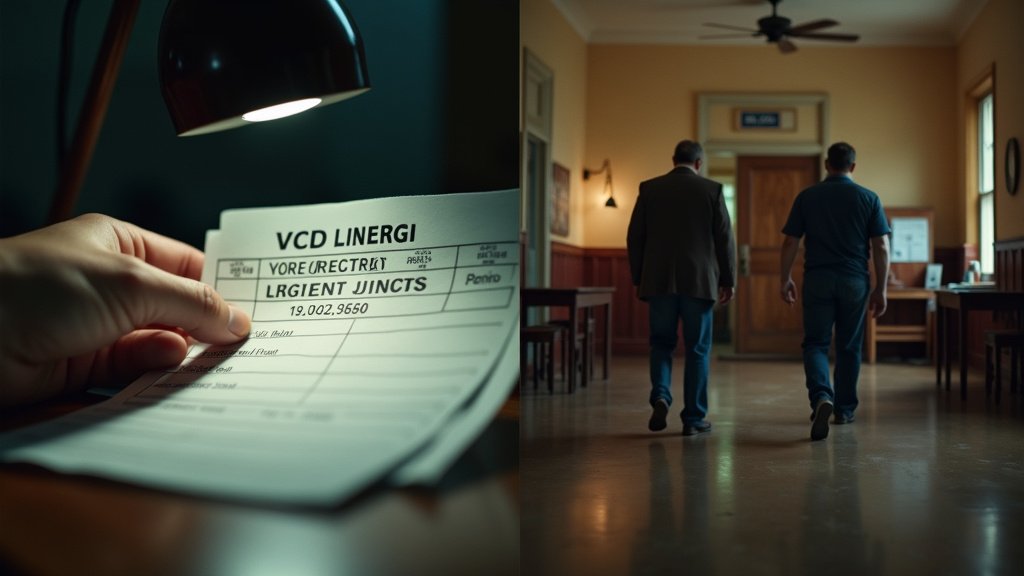A significant shift in Texas vehicle identification takes effect this week, marking the end of temporary paper license plates. Beginning Tuesday, July 1, 2025, temporary paper tags will be formally eliminated across the state, replaced entirely by metal license plates. This mandatory change stems from House Bill 718, landmark legislation signed into law by Governor Greg Abbott in 2023.
Combatting Widespread Fraud
The core motivation behind this legislative overhaul is the persistent and widespread fraudulent use of temporary paper tags. For years, authorities have reported that these easily counterfeited or misused paper documents have become a tool of choice for individuals seeking to evade vehicle registration requirements, tolls, and fees, thereby operating vehicles outside the legal framework and often in connection with illicit activities.
Law enforcement officials have repeatedly highlighted the challenges posed by vehicles bearing fraudulent paper tags. Grand Prairie Police Chief Daniel Scesney, a prominent voice in advocating for the change, described fraudulent paper tags as the “criminal instrument of choice.” He elaborated that these illicit tags are frequently utilized in a range of criminal enterprises, including those linked to drug dealers, human smugglers, auto theft rings, and street gangs. The anonymity provided by fraudulent tags made it significantly harder for officers to identify vehicles and their operators during routine enforcement actions or criminal investigations.
A Catalyst for Change
Efforts to pass House Bill 718 gained critical momentum following a tragic incident in 2022. Grand Prairie police officer Brandon Tsai died in a crash that occurred while he was pursuing a vehicle displaying fraudulent license plates. Officer Tsai’s death underscored the real-world dangers faced by law enforcement personnel when confronting vehicles obscured by the use of illegal tags, galvanizing support for legislative action to address the vulnerability.
Authored to enhance public safety and curb criminal activity facilitated by anonymous vehicle operation, House Bill 718 mandated the phase-out of paper tags in favor of a more secure, traceable metal plate system.
Implementation and The New System
The implementation of the law was strategically delayed until July 1, 2025, a timeline specifically designed to provide the Texas Department of Motor Vehicles (TxDMV) with adequate time. This period was crucial for the agency to establish and refine a comprehensive new system capable of effectively distributing and tracking the mandated metal license plates.
The transition involves more than just a change in material. Under the new system now fully implemented by TxDMV, each issued license plate will be directly linked to a specific name and address. Chief Scesney noted that this crucial linkage will furnish law enforcement officers with vital, immediate information during traffic stops or investigations, significantly improving their ability to identify vehicle ownership and enhancing officer safety.
The Transition Period
The formal end of the paper tag era arrived on Monday, June 30, 2025, which marked the last day for most temporary paper license plates to be legally printed in the state of Texas. While new paper tags will no longer be issued as of Tuesday, July 1, 2025, existing, valid paper tags are expected to remain in circulation for a limited time.
State officials anticipate that most currently valid paper tags will naturally expire within 60 days of the July 1st effective date. This means the complete phase-out of temporary paper license plates across Texas is projected to be finalized by approximately September 1, 2025, by which point virtually all vehicles on Texas roads are expected to display permanent metal license plates.
Looking Ahead
The move to a metal license plate system represents a significant step in Texas’s ongoing efforts to modernize vehicle registration processes and enhance public safety. By eliminating a loophole frequently exploited by criminals, state authorities aim to make it more difficult to operate vehicles anonymously and evade legal responsibilities.
Law enforcement across the state views this transition as a valuable tool in their ongoing fight against various forms of organized crime and everyday traffic violations, anticipating a more transparent and secure system for identifying and tracking vehicles on Texas roadways. The effective date marks a pivotal moment in this transition, ushering in a new standard for vehicle identification in the Lone Star State.






